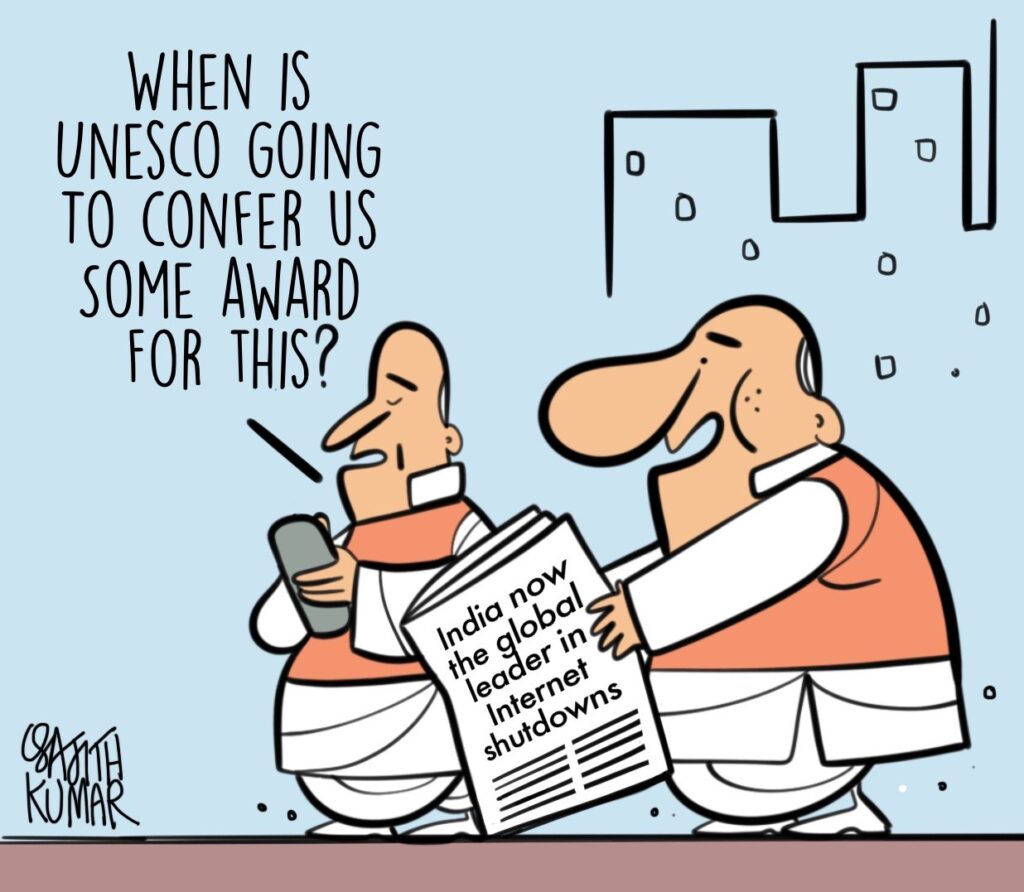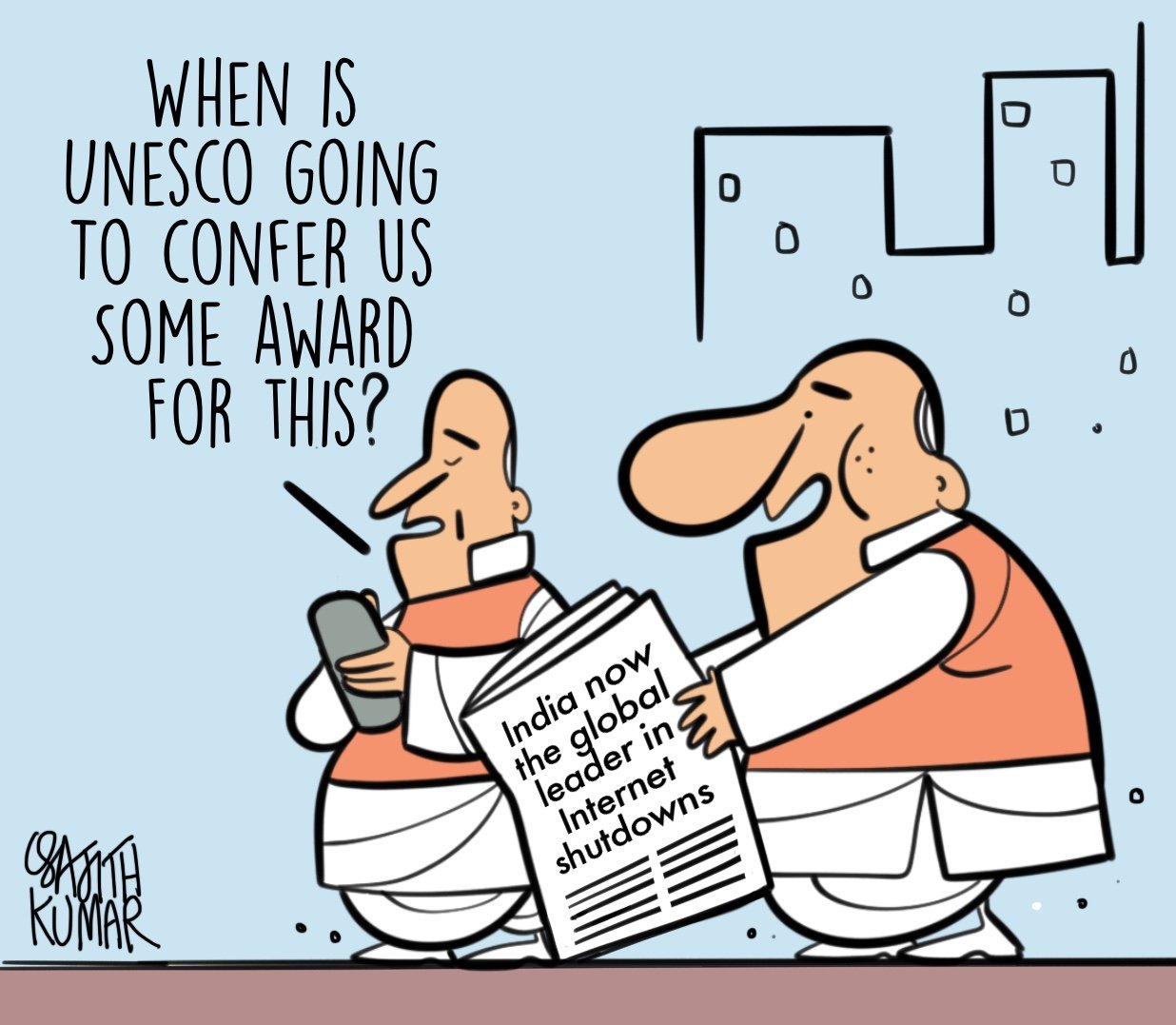Monitoring Shutdowns – Introduction

India suspends internet services more often than most countries. In 2023 alone, governments across the country suspended internet services on 33 separate occasions – effectively prohibiting citizens from accessing news, availing banking services, conducting business and staying connected with friends and family. Considering the ubiquity of internet today, I am of the opinion that internet should be considered a non-derogable right, i.e. it should not be restricted in any circumstance.
This, however, is not the position of the law. Section 5(2) of the Telegraph Act, 1885 permits Central and State Governments to suspend internet services in the event of a public emergency or if there is a threat to public safety. Supreme Court in Anuradha Bhasin v. Union of India, examined this provision and the rules laid under it, recognised that internet is a medium through which individuals can exercise fundamental rights, and laid down safeguards to ensure that the power conferred by Section 5(2) is not abused.
Considering this is what the law is, in this series I will examine whether authorities comply with the law when they suspend internet services. In order to streamline this exercise, I will ask the questions listed below from the orders:
Procedural Compliance
- Did the concerned government publish the suspension order?
- Whether the order was issued under Section 5(2) of the Telegraph Act, 1885 read with Temporary Suspension of Telecom Services (Public Emergency or Public Safety) Rules, 2017?
- Was the order was issued by the Home Secretary?
- If the answer to 3 is no, was it issued by an officer authorised by the Home Secretary?
- If the answer to 4 is yes, has the order been confirmed by the Home Secretary within 24 hours?
- Was the order placed before a review committee by the next working day?
- Did the review committee examine the order within 5 working days from the date of the order?
Substantive Compliance
- Does the order contain reasons justifying suspension of internet services?
- Whether there was a public emergency or an interest of public safety, as noted in order, justifying the issuance of the order?
- Was it necessary or expedient to issue the order in the interests of the sovereignty and integrity of India, the security of the State, friendly relations with foreign states or public order or for preventing incitement to the commission of an offence?
- Does the order adhere to the test of proportionality?
- Does it have a legitimate purpose?
- Is suspension of internet services rationally connected to fulfillment of that purpose?
- Are there alternative measures, apart from suspending internet services, which the government could have undertaken to achieve that purpose?
The purpose of this exercise is to contribute to the existing conversation on internet shutdowns. I understand the limitations. First – on many occasions, internet shutdown orders are not even published – effectively preventing me (and those affected) from asking questions 2 to 11. Second – information regarding several questions I intend to ask is rarely available in the public domain. For example, governments rarely disclose if their review committee has examined the legality of the orders. Nevertheless, I am still determined to pursue this exercise. The instances where the aforementioned limitations are operating, especially need to be recorded. I understand that this means that the answer to several of the questions above will simply be, we do not know.
Lastly, it would be remiss to not acknowledge the remarkable work which is already being done in this field. Internet Freedom Foundation, a digital rights organization where I previously worked as the Associate Litigation Counsel, has been advocating (often successfully) against unlawful internet shutdowns for several years now. Amongst other things, they provide legal representation to those affected by shutdowns, address representations to authorities imploring them to withdraw suspension orders and file right to information applications with public authorities seeking information regarding shutdowns. Similarly, Software Freedom Law Centre – another digital rights organization – has been tracking instances of internet shutdowns for several years now. In this series, I will be relying on the work of both these organizations.


1 Response